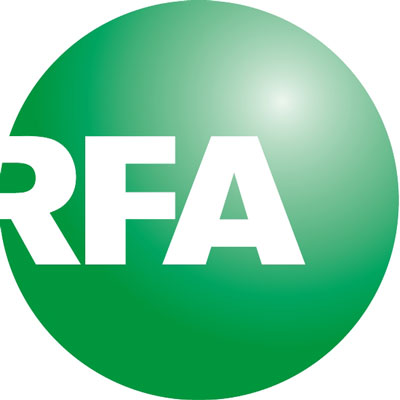Tibetans living outside their China-ruled homeland will go to the polls April 11 in a third and final casting of ballots for leader, or Sikyong, of Tibet’s Dharamsala, India-based exile government, the Central Tibetan Administration, with final results announced on May 14.
Lobsang Sangay, a Harvard-trained scholar of law, has served two consecutive five-year terms as Sikyong, an office filled by candidates elected since 2011 by popular vote, and will leave that post when his present term expires in May.
The Tibetan diaspora is estimated to include about 150,000 people living in 40 countries, mainly India, Nepal, North America, and in Europe.
Penpa Tsering, a former speaker of Tibet’s exile parliament, and Aukatsang Kelsang Dorjee, a former representative of Tibetan spiritual leader the Dalai Lama—frontrunners in the current race after prevailing in earlier voting—are pledging strengthened efforts to win greater freedom in Tibet, with plans for outreach to foreign governments and support groups worldwide.
Tibet’s new Sikyong must continue to push for talks with China on greater autonomy for Tibet, “but I am not very hopeful that the Chinese government will initiate a dialogue with the Tibetan administration,” Aukatsang said, speaking to RFA’s Tibetan Service in a recent interview.
“So we must work towards enhancing the Tibetan freedom struggle, and the Tibetan administration must focus more on that struggle than on the administration alone,” Aukatsang said. “Engaging and garnering support from the Indian government and its citizens is something I will work more towards.”
Also speaking to RFA, Penpa Tsering promised to pursue “all possible ways to communicate with China, whether it’s directly or indirectly.”
“But until Tibet’s issue is resolved, my primary focus of work will be to make sure that Tibetans inside Tibet are happy, and also to find ways to reject China’s assimilationist policies on Tibet’s language, culture, religion, and environment, along with the growing influx of Chinese [migrants] into Tibetan areas.”
“These issues will remain the most important, and only after these will come the issue of looking after the welfare of the Tibetans living exile,” Tsering said.
Parliament members chosen
The May 14 election results will also seat 45 members of the exile Tibetan Parliament in its new, seventeenth session, with 10 candidates representing each of Tibet’s three traditional provinces—U-tsang, Kham, and Amdo—and two representatives from each of Tibet’s four major schools of Buddhism and the pre-Buddhist Bon religion.
Two members will also be voted in to represent each of the exile Tibetan communities in North and South America and Europe, and one from Australia and Asia, excluding India, Nepal, and Bhutan.
In interviews with RFA, Tibetan residents of India expressed different levels of familiarity with the candidates on offer, with some saying they were well informed, and others admitting to confusion.
“I’ve thoroughly studied the background of all these candidates, because they will be representing six million Tibetans,” said Lobsang Lungtok, a resident of South India, including in that figure the number of Tibetans still estimated to be living in their traditional homeland.
“I want honest and dedicated persons to be present [in parliament],” he said.
“Because there are so many candidates running for parliament, I am very confused,” Tenzin Choekyi, another South India resident, said. “Therefore, I am relying on the news media and social media such as Facebook to help me make my decisions.”
Formerly an independent nation, Tibet was invaded and incorporated into China by force 70 years ago, following which the Dalai Lama and thousands of his followers fled into exile in India and other countries around the world.
Divisions persist in the Tibetan exile community over how best to advance the rights and freedoms of Tibetans living in China, with some calling for a restoration of the independence lost when Chinese troops marched into Tibet in 1950.
The Central Tibetan Administration (CTA) and the Dalai Lama have instead adopted a policy approach called the Middle Way, which accepts Tibet’s status as a part of China but urges greater cultural and religious freedom, including strengthened language rights, for Tibetans living under Beijing’s rule.
Both frontrunners in the current contest for Sikyong support the Middle Way.
Partial success seen
The outgoing Sikyong, Lobsang Sangay, has had some success in his two terms of office, winning an annual commitment from the United States of $9 million and a large grant from Congress to support the Tibetan exile community, two Western experts on Tibet wrote in a March 31 article in East Asia Forum.
“But Sangay had no success in the exiles’ primary objective: persuading China to allow Tibet a ‘high degree of autonomy’ in return for the Dalai Lama accepting Chinese sovereignty over his former country,” said Robert Barnet, of London’s School of Oriental and African Studies, and Cornell University’s Allen Carlson.
The challenge facing Tibet’s exile leadership now will be to move away from media campaigns and appeals for legislative support to “detailed, pragmatic strategies demonstrating shared interests with [other] governments,” Barnett and Carlson wrote, adding that deepened relations with India’s leaders will be especially important.
“But while India’s hospitality towards the exiles has been unwavering, its strategic interests generally converge with those of the exiles only when its relations with China sour,” they wrote.
“A strategy needs to be developed that is seen by New Delhi as benefiting its interests in fair weather or foul,” Barnet and Carlson said.
Nine rounds of talks on greater autonomy in Tibetan areas of China were held between high-level Chinese officials and envoys of the Dalai Lama beginning in 2002, but stalled in 2010 and were never resumed.
Reported by Kalden Lodoe and Tashi Wangchuk for RFA’s Tibetan Service. Translated by Tenzin Dickyi. Written in English by Richard Finney.
PrintRadio Free | Radio Free (2021-04-07T20:36:04+00:00) Final Vote For Exile Tibetan Leader Set For April 11, With Frontrunners Pledging Greater Foreign Outreach. Retrieved from https://www.radiofree.org/2021/04/07/final-vote-for-exile-tibetan-leader-set-for-april-11-with-frontrunners-pledging-greater-foreign-outreach/
Please log in to upload a file.
There are no updates yet.
Click the Upload button above to add an update.
